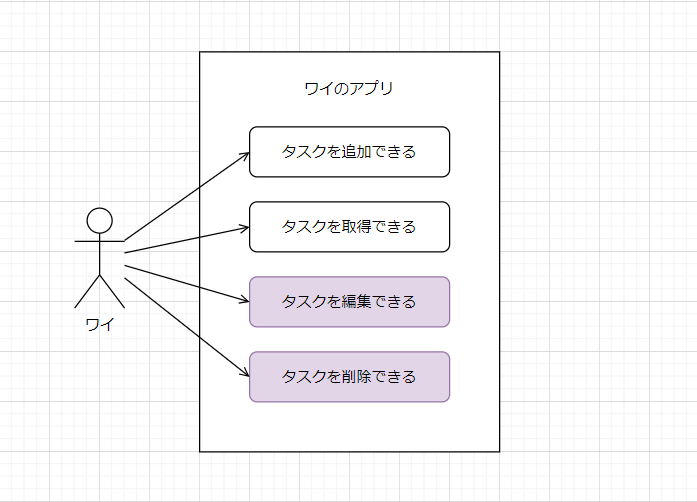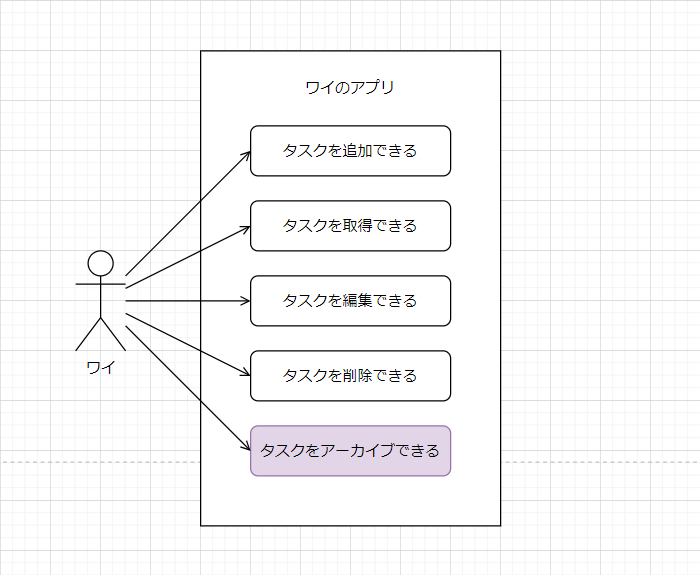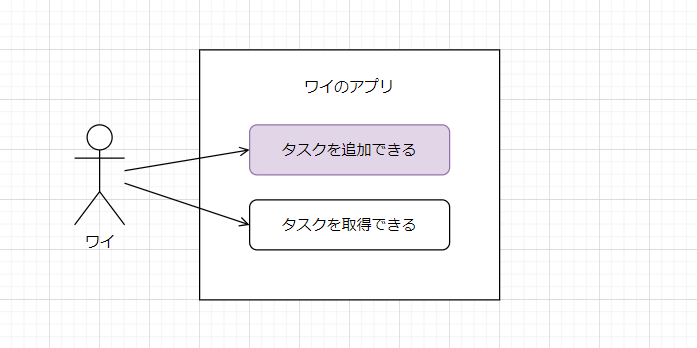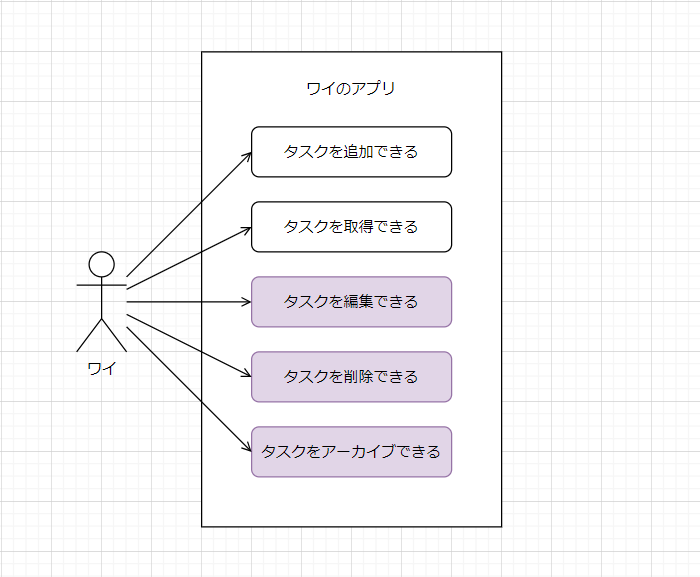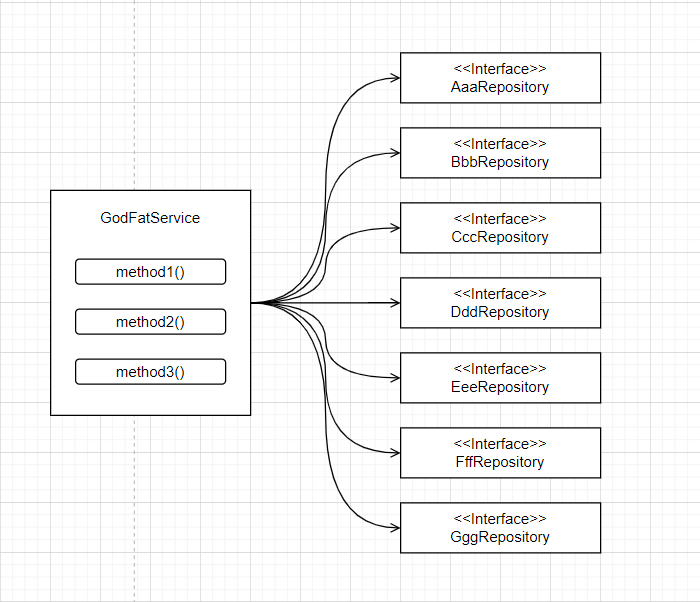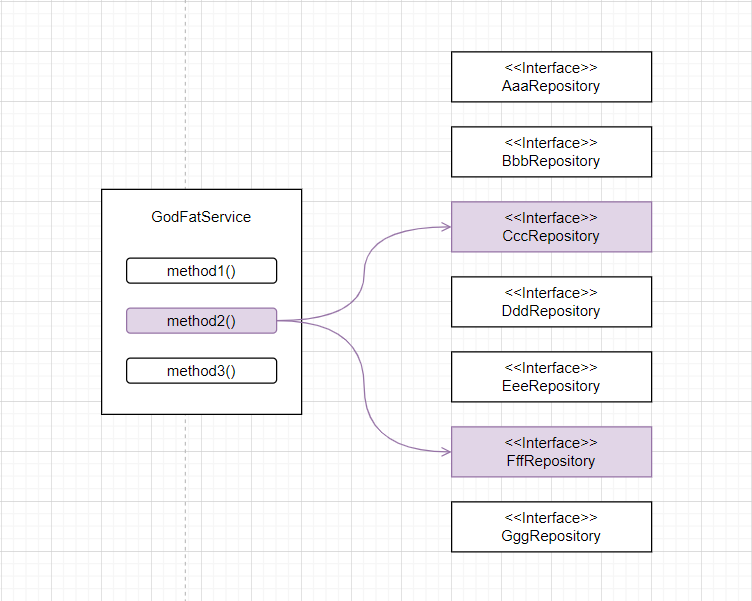7-Year-Old Daughter: 'Dad, Isn't Your Service Class Going to Get Bloated?'
Back to TopTo reach a broader audience, this article has been translated from Japanese.
You can find the original version here.
A Certain Holiday at Our Home
#Me: "Hey, hey"
Me: "Aren't I a genius?"
Me: "(Clickety-clack...)"
Me: "(SLAM!!!)"
Me: "Ah, it died."
Daughter (7 years old): "Dad, what are you doing today?"
Me: "Oh, my daughter"
Me: "Today, I'm studying how to implement service classes with SpringBoot"
Me: "The theme is a simple task management tool!"
Daughter: "Wow, that's amazing!"
Me: "Hehehe///"
Me: "Right?"
Daughter: "Can I take a look?"
Me: "Oh, sure sure!"
Me: "I just finished implementing"
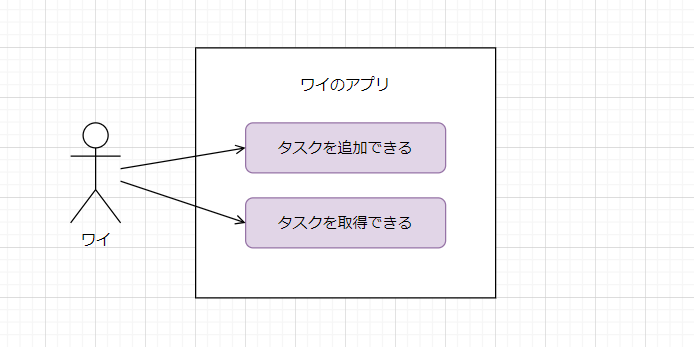
Me: "↑this use case."
@RequiredArgsConstructor
@Service
public class TaskService {
private final ITaskRepository repository;
private final INotifier notifier;
@Transactional
public Long add(final String title, final String description, final Long assigneId) {
var task = Task.create(title, description, assigneId);
var savedTask = this.repository.save(task);
if (task.isAssigned()) {
this.notifier.notify(task.getAssigneId());
}
return savedTask.getId();
}
public Task get(final Long taskId) {
var maybeTask = this.repository.findById(taskId);
var foundTask = maybeTask
.orElseThrow(() -> new UseCaseException("Task not found."));
return foundTask;
}
}
Me: "↑The code looks like this."
Daughter: "So―"
@Transactional
public Long add(final String title, final String description, final Long assigneId) {
var task = Task.create(title, description, assigneId);
var savedTask = this.repository.save(task);
if (task.isAssigned()) {
this.notifier.notify(task.getAssigneId());
}
return savedTask.getId();
}
Daughter: "↑This implements the use case"
Daughter: "that adds a task."
public Task get(final Long taskId) {
var maybeTask = this.repository.findById(taskId);
var foundTask = maybeTask
.orElseThrow(() -> new UseCaseException("Task not found."));
return foundTask;
}
Daughter: "↑And this one implements the use case"
Daughter: "that retrieves a task."
Me: "Exactly."
Daughter: "I see―"
Daughter: "But, somehow"
Daughter: "Dad, your service class seems like it's going to get bloated?"
Me: "What... did you say..."
What is a Bloated Service Class?
#Daughter: "For example, after this"
Daughter: "↑If you're going to implement such use cases,"
Daughter: "where are you planning to write this logic?"
Me: "Well, in TaskService, of course."
Daughter: "And then, what if"
Daughter: "↑such use cases are added?"
Me: "TaskService, of course."
Daughter: "Why?"
Me: "Eh? Because"
Me: "Providing services related to tasks is the responsibility of"
Me: "a class called TaskService, so"
Me: "implementing it there would be best, wouldn't it?"
Daughter: "That's exactly it!"
Me: "What do you mean?"
Daughter: "Well"
Daughter: "The abstract class name TaskService, which has a broad meaning,"
Me: "Providing services related to tasks..."
Daughter: "↑This abstract responsibility makes it seem like"
Daughter: "all sorts of logic related to tasks can be implemented"
Daughter: "in TaskService."
Me: "So, in other words..."
Me: "The name of the service class"
Me: "allows for various interpretations"
Me: "because it's ambiguous,"
Me: "making you want to implement"
Me: "this and that process"
Me: "in TaskService"
Me: "...is that what you mean?"
Daughter: "Yeah, that's right."
Daughter: "So, if it continues like this,"
Daughter: "every time a new task-related specification is added,"
Daughter: "the logic will be added to TaskService,"
Daughter: "and the necessary dependency classes will be added,"
Daughter: "gradually bloating the service class."
Me: "I see."
Me: "So, if we name TaskService something more specific..."
- public class TaskService {
+ public class TaskAddAndGetService {
}
Me: "↑Like this!"
Daughter: "No, that's completely wrong."
Daughter: "That doesn't solve anything."
Daughter: "If anything, it's getting worse."
Me: "Oh..."
Me: "Then, what should we do..."
Daughter: "Dad, in such cases,"
Daughter: "Define service classes per use case!"
Defining Service Classes Per Use Case
#Daughter: "Then, let me"
Daughter: "↑reimplement this use case to show you."
Me: "Oh, my daughter is amazing!"
Me: "Thank you."
Daughter: "First,"
Daughter: "if we define a class corresponding to this use case,"
@Service
public class TaskAddUseCase {
}
Daughter: "↑it becomes like this."
Me: "I see"
Me: "Adding a task as a use case, so"
Me: "TaskAddUseCase it is."
Daughter: "Right."
Daughter: "Then, we move add() from TaskService to"
Daughter: "TaskAddUseCase―"
@Service
public class TaskAddUseCase {
+ @Transactional
+ public Long add(final String title, final String description, final Long assigneId) {
+
+ var task = Task.create(title, description, assigneId);
+ var savedTask = this.repository.save(task);
+
+ if (task.isAssigned()) {
+ this.notifier.notify(task.getAssigneId());
+ }
+
+ return savedTask.getId();
+ }
}
Daughter: "↑like this."
Daughter: "But as it is,"
Daughter: "when calling this method from the controller class―"
taskAddUseCase.add(title, description, assigneId);
Daughter: "↑it kind of feels like adding something to a use case,"
Daughter: "so the method name should be―"
@Service
public class TaskAddUseCase {
@Transactional
- public Long add(final String title, final String description, final Long assigneId) {
+ public Long execute(final String title, final String description, final Long assigneId) {
var task = Task.create(title, description, assigneId);
var savedTask = this.repository.save(task);
if (task.isAssigned()) {
this.notifier.notify(task.getAssigneId());
}
return savedTask.getId();
}
}
Daughter: "↑changed to this."
Me: "I see"
Me: "Indeed, this way―"
taskAddUseCase.execute(title, description, assigneId);
Me: "↑'executing a use case'"
Me: "feels natural without any discomfort!"
Daughter: "Right."
Daughter: "You could also name it handle if you prefer."
Me: "I see."
Daughter: "Finally, we bring over the classes add() depends on"
Daughter: "from TaskService―"
@RequiredArgsConstructor
@Service
public class TaskAddUseCase {
+ private final ITaskRepository repository;
+ private final INotifier notifier;
@Transactional
public Long execute(final String title, final String description, final Long assigneId) {
var task = Task.create(title, description, assigneId);
var savedTask = this.repository.save(task);
if (task.isAssigned()) {
this.notifier.notify(task.getAssigneId());
}
return savedTask.getId();
}
}
Daughter: "↑and it's done!"
Me: "Oh, it's become much simpler!"
Daughter: "Right?"
Daughter: "By defining service classes per use case,"
Daughter: "you naturally come to give them specific names related to that use case."
Me: "I see."
Daughter: "Then, the responsibilities become clear,"
Daughter: "and only the logic and dependency classes necessary for realizing that use case are aggregated."
Me: "I see."
Me: "Indeed, if it's like this,"
Me: "as you mentioned earlier,"
Me: "↑even if such use cases are added,"
Me: "I wouldn't think to implement them in TaskAddUseCase."
Daughter: "Exactly."
Daughter: "So, you can avoid having a single service class become increasingly bloated."
Me: "I see."
Me: "Naming really is important, isn't it?"
Daughter: "Yes."
Daughter: "Names represent the essence, after all."
Me: "Indeed."
Daughter: "Oh, and also,"
Daughter: "there's another benefit."
Me: "Really?"
Daughter: "Yes."
Use Cases Are Easier to Understand
#Daughter: "First,"
Daughter: "just by looking at the directory, you can easily grasp"
Daughter: "what use cases are present in this system."
usecase
└tasks
├TaskAddUseCase.java
├TaskDeleteUseCase.java
├TaskEditUseCase.java
└TaskGetUseCase.java
Daughter: "↑See?"
Me: "Oh, indeed!"
Me: "It's easy to map to the use case diagram,"
Me: "kind of like self-documenting use cases."
Daughter: "Right!"
Daughter: "And then?"
Tests Become Easier to Write
#Daughter: "Writing tests for service classes becomes easier."
Me: "How so?"
Daughter: "Bloated service classes have"
Daughter: "a lot of dependency classes, right?"
Daughter: "↑Like this."
Me: "Yes."
Daughter: "But, for the method you're testing,"
Daughter: "often only a part of them is used."
Daughter: "↑Like this."
Me: "Ah, indeed."
Me: "Despite having to DI so much into the service class,"
Me: "the classes you mock for the method being tested are surprisingly few."
Daughter: "That's right."
Daughter: "And, figuring out which classes need to be mocked"
Daughter: "from the code can be a bit troublesome, right?"
Me: "Yes."
Daughter: "But, if service classes are defined per use case,"
Daughter: "only the dependency classes necessary for realizing that use case are aggregated,"
Daughter: "so you only need to DI those classes,"
Daughter: "and those classes are definitely used in the method being tested."
Me: "I see."
Me: "So, you won't be confused about which classes to mock."
Daughter: "Exactly!"
Me: "Thank you, my daughter."
Me: "I learned a lot."
Summary
#- When service classes have broad and abstract names,
their responsibilities become ambiguous and are prone to bloat.
- Defining service classes per use case allows for specific naming,
clear responsibilities, and reduces bloat.
- Additionally,
- Use cases become easier to understand.
- Writing test code becomes easier.
Me: "↑That's the idea!"
Daughter: "Yes!"
Bonus
#Me: "The arguments and return value of TaskAddUseCase's execute()"
public TaskAddResponse execute(final TaskAddRequest request) {
var task = Task.create(
request.getTitle(),
request.getDescription(),
request.getAssigneId());
// Omitted for brevity
return new TaskAddResponse(savedTask);
}
Me: "↑Changing it to DTO like this has benefits"
- Changes to the data passed from the presentation layer don't require signature changes
- Domain objects can be kept private from the presentation layer
Me: "↑like these!"
Daughter: "Then, the directory structure would be"
usecase
└tasks
└add
├TaskAddRequest.java
├TaskAddResponse.java
└TaskAddUseCase.java
Daughter: "↑like this."
Me: "Indeed!"
